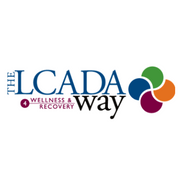How to Help a Loved One Maintain Sobriety

Watching a loved one deal with addiction is challenging at best. Well-intentioned spouses and family members just want to help it end, but they must remember that addiction recovery is an ongoing journey. Beyond taking the first step of acknowledging the alcohol, drug, or gambling addiction, is the process of staying sober. For those determined to live their lives substance-free, having consistent support from loved ones makes a positive difference. If a family member or friend has transitioned to sobriety, here is how you can help them stay on that path.
4 Ways to Support a Loved One's Sobriety
1. Listen
One of the most supportive gestures you can do for people in addiction recovery is to be an active listener. Having someone with whom to share their emotions, frustrations, and accomplishments creates a healthy alternative to relapsing. Make it a point to listen with compassion, not judgment. Often, individuals just want to talk rather than seek advice, so only offer counsel if they specifically ask for it. Your role is to listen, validate their feelings, and mirror back what you were told.
2. Encourage Healthy Alternatives

Whether it's signing up for a dance class or discovering a new hobby, encourage your loved one to go for it. Be open to participating in the activity for added support. Daily walks on park trails can boost energy and help with physical fitness, while eating healthier foods together is another way to be supportive and aid with maintaining sobriety.
3. Focus on the Present
Though reminding recovering individuals about their past addictive behaviors may be unintentional, doing so can come across as judgmental. This can cause a loved one to feel guilt and shame, negatively impacting their sobriety. Remain in the present with your support by redirecting your energy toward the way they're living their lives today by focusing on current accomplishments at work, school, and other areas.
4. Eliminate Temptations
The sight of alcohol, prescription medicine, or over-the-counter pain pills can trigger a person in recovery, so removing all items in the home creates a supportive environment. Maintaining sobriety will also require refraining from alcohol and medicine consumption in front of and around a loved one trying to overcome addiction. One long-term recovery goal for individuals is to remain in control even when substances are accessible.
Since 1981, The LCADA Way has provided comprehensive treatment for individuals seeking help with alcohol, drug, and gambling addictions. Based in Lorain, OH, and serving Wadsworth, the state-licensed center meets patients where they are on their recovery journeys. They offer group and individual telehealth counseling and in-person counseling, abiding by the Centers for Disease Control guidelines. With transportation and access to sober living and housing, their services are designed to give patients the tools to achieve and maintain sobriety. Visit them online for more information on their services, or call (440) 989-4900 to speak to a counselor.
About the Business
Have a question? Ask the experts!
Send your question

